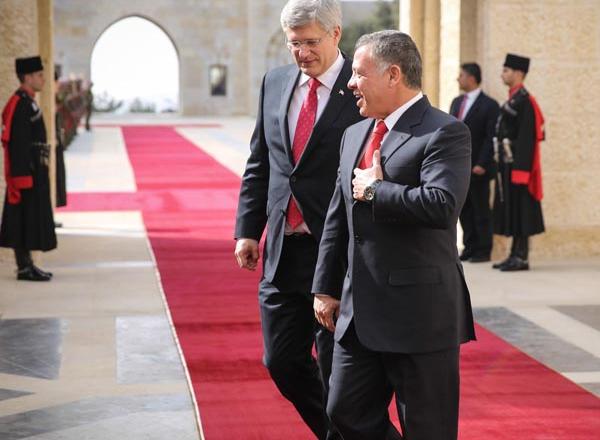AMMAN — Caritas Poland is focusing on supporting Syrian children with disabilities in the Kingdom, with the intention of extending its project for a third year, according to a representative of the international organisation in Jordan.
Rafal Chibowski, coordinator of Caritas international projects, said the organisation launched its mission to help Syrian children in 2012 and is covering the fields that are not thoroughly covered by other humanitarian agencies.
“Most of the organisations focus on humanitarian assistance, providing refugees with food, clothes and official education. Thus we decided to have a different type of assistance,” Chibowski said, adding that this assistance includes providing Syrian children and their families who live among host communities with informal education.
“We fulfil the agenda that comes from the Jordanian government and UNICEF, and focus on teaching languages and art classes,” he told The Jordan Times in a recent interview.
Muhammad, a father of two Syrian children who attend Caritas classes said the art lessons helped them open up.
“Children were drawing things which normally they would not talk about. At the beginning the most frequently occurring pictures were very traumatic, full of human bodies, guns and burned houses. After few months my children started drawing pictures full of colours,” the refugee from Daraa said in an e-mailed statement.
“Classes have a therapeutic value [for them],” he added.
In the first year of the project, “we were organising evening classes for 200 Syrian children in Mafraq and Zarqa governorates” between the ages of five and 15, Chibowski said.
In addition, Caritas provided training on life skills (cooking and computer classes) for 150 men and women aged between 15 and 35.
After conducting an evaluation of its programmes, in 2013 Caritas decided to extend the project to include 600 beneficiaries in Karak, Madaba, Amman, Zarqa, Mafraq and Irbid.
The organisation also held events in each city for one month, offering artistic activities and theatre classes, Chibowski said.
Moreover, Caritas has allocated $1 million to implement projects for Syrian refugees in Lebanon and those internally displaced in Syria,
In Jordan, the third phase of the project will focus on the education of children with disabilities.
“If we manage to receive the funds we asked for, we will start in April or May,” Chibowski said, adding that there is a lack of support for children with disabilities. “So we started working with 32 children with disabilities, providing them with physical therapy, [and raising] awareness [among] parents.”
Caritas Poland is a member of Caritas Internationalis and Caritas Europe, and actively collaborates with members on overseas emergency and developmental programmes, according to the organisation’s website.
Established in 2004, it is part of the Conference of the Polish Episcopate.



















